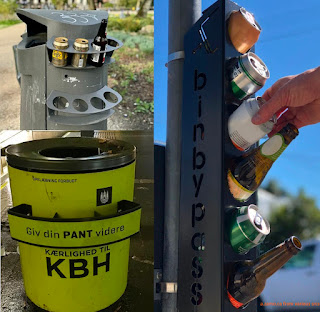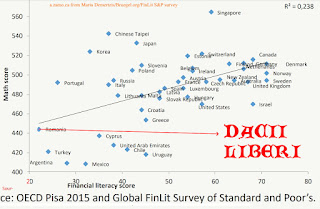Trash Garbage Bin with can holder
Varianta în limba română pe FaṭăCarte Meta Zamolxis.
- Many homeless and Roma (Gypsy) people are helping the environment and themselves by collecting recyclables for cash.
- Oradea journalist AT presents them as if they are organized crime groups.
- In more enlightened places garbage cans are designed with recyclable holders to help such helpers.
I recently stumbled upon an article from Oradea (ebh-gdPET) via g4m-ebhordgdp, where Adriana Totorean writes about the Roma population (whom she also calls “Gypsy”), collecting recyclables for money.
A few quotes:
For several weeks, more and more people have been carrying bags of PET on the streets of Oradea. They are usually homeless or Roma people, rummaging through bins or street bins for PETs, cans or bottles that they can get money for in shops.
The business thrives, because many people in Oradea throw away unused PETs, which are only good for the guarantee collection. As soon as they catch an open rubbish bin, the gypsies come in and rummage for bottles.
Another problem is that some "scavengers" smash the yellow bags left in the street by the citizens of Oradea, which makes it easy for the rubbish to spread.
The people involved say how lucrative the business is. A woman who daily checks the street bins in the centre of Oradea collects all the bottles thrown by passers-by, most of them 0.5 litres in volume. "There was a time when I made 650 lei from bottles", she boasts of the most profitable day since she took up her new "hobby". A simple mathematical calculation shows that the woman returned 1,300 packs to the shop, collected in 2-3 days.
Some Roma even organised themselves into teams. They come from the villages of Bihor, 4-5 in a car, and the only one who doesn't rummage through the rubbish is the driver - he has the job of driving them around town and keeping the PETs safe in the boot, then taking them to a shop. At the end of the day, after the fuel costs have gone down, they split the money, and the next day, if they feel like it, they start again. If not, the next time they run out of cash..
This is typical for Romanian “mass-media”: the use of the term “Gypsy”, considered pejorative, is somewhat more “progressive” when interspersed with “Roma”. And it’s perhaps the main contributor to the feeling that the author, reflecting the view of those interviewed, sees this development (poor Roma people recycling for cash) as negative. How dare they make money?!
There is very little compassion and/or empathy for these people.
Yet, even though antiziganism (aka antiRoma sentiment) is a widespread European phenomenon, we can see that pragmatic initiatives to help them and prevent “dumpster-diving” or destructive, insanitary trash scouring have taken shape in more enlightened European cities. In the photo, we have Amsterdam top left, Copenhagen bottom left and “binbypass” from Australia’s Queensland on the right. These designs for public garbage bins allow citizens to drop reusable containers separately, so that others may take them to get their meagre guarantee without having to go through all the existing garbage.
LE: See also the Salome Blaser story (who lived at Pata Rat - w, nw, cj24, eja) and this could have been the latest in the PocRrrom saga.
We could all try to be a bit more positive, pragmatic and creative in our problem-solving.
Sources / More info: g4m-ebhordgdp, ebh-gdPET, fbmt-hwcmdutch




Comments
Post a Comment
Thank you for commenting. Please keep it sweet and civil. Puteti comenta in romana si pe Meta la fb.me/zamolxis or Twitter @zamoca